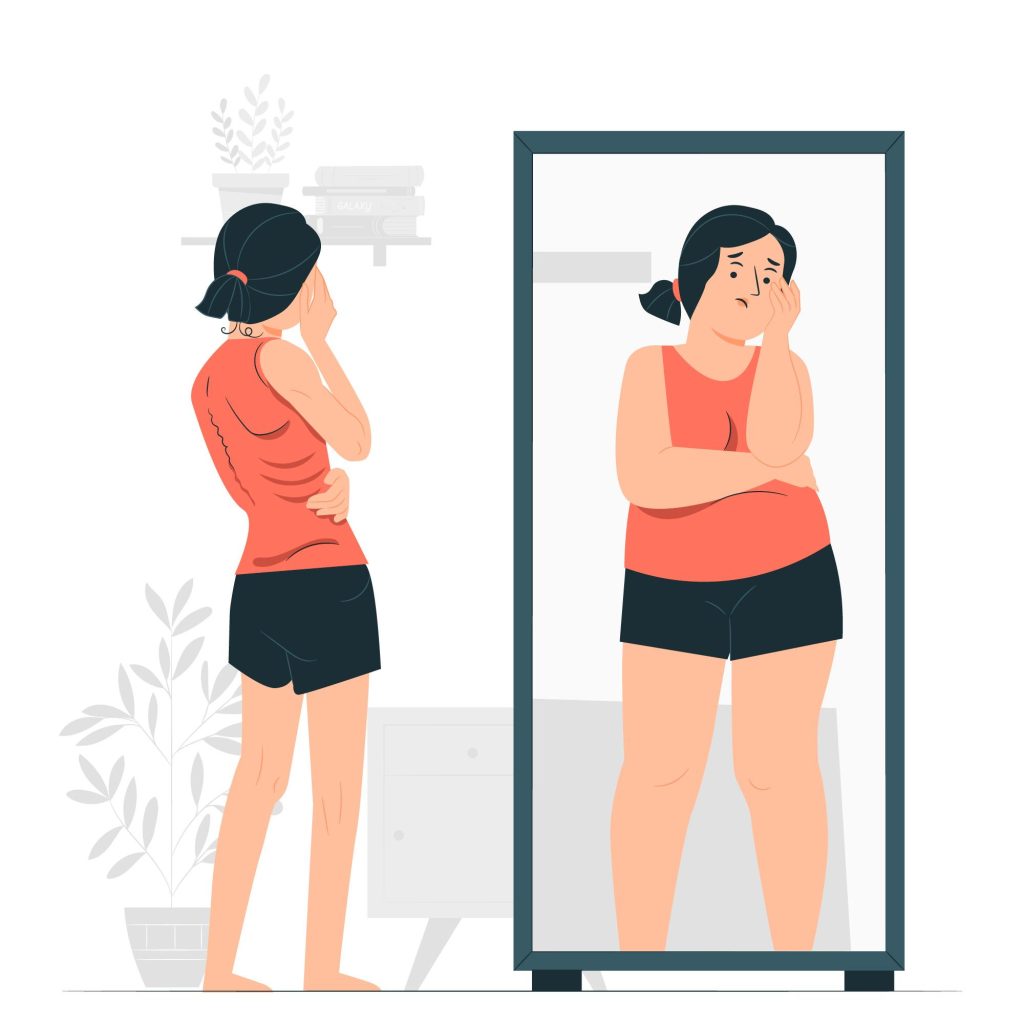
What is Anorexia?
Anorexia is when someone becomes obsessed with their weight and food. They might think they’re overweight even if they’re really thin. It’s a disorder that often starts during the teenage years and mostly affects girls. The number of young girls with anorexia has been increasing, which is why it’s essential to learn about it.
The Key Symptoms:
- Low Body Weight: People with anorexia have a much lower body weight than what’s considered healthy for their age and height.
- Fear of Gaining Weight: An intense fear of gaining weight is a core part of anorexia. This fear drives their behaviors.
- Distorted Body Image: Anorexia can lead to a warped body image, making someone see themselves as fat when they’re not.
How It Works
People with anorexia often do extreme things to control their weight. They might eat very little, exercise too much, or even use methods like using laxatives to lose weight. This constant fear of gaining weight can take over their lives.
It’s More Than Food
Anorexia isn’t just about food; it’s a way some people try to cope with their emotions. They may think that being thin equals self-worth, but that’s not true. It’s crucial to know that there’s help available for those struggling with anorexia.
Complications
Over time, individuals with anorexia may develop the following symptoms related to starvation or purging behaviors:
- Absence of menstrual periods
- Dizziness or fainting due to dehydration
- Brittle hair and nails
- Sensitivity to cold
- Muscle weakness
- Heartburn and reflux (in those who vomit)
- Severe constipation, bloating, and fullness after meals
- Stress fractures from compulsive exercise, as well as bone loss leading to osteopenia or osteoporosis (thinning of the bones)
- Depression, irritability, anxiety, poor concentration, and fatigue
Getting Help
If you or someone you know is dealing with anorexia, it’s essential to seek help. Treatment can help regain a sense of self, develop healthier eating habits, and address the complications that come with anorexia.
Remember
Anorexia is a real and serious issue, but understanding it is the first step toward helping yourself or someone else. You don’t have to face it alone. Reach out to a trusted adult, teacher, or counselor for support.
By educating ourselves and raising awareness about anorexia, we can support those affected and work together to create a healthier future.